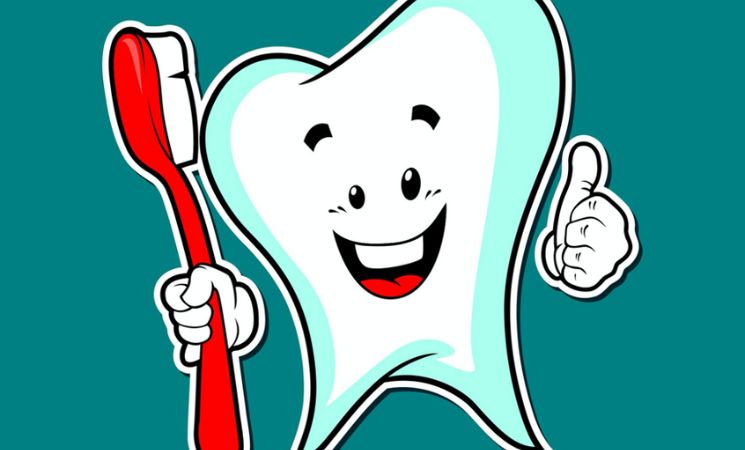Do you ever wonder how much a small child’s dental health affects their growth and development? Many parents may overlook dental care for their young children, thinking that baby teeth are temporary. However, dental issues that seem small now can have big consequences down the road. Ignoring these problems doesn’t just impact teeth.
By reading this guide, you’ll understand why dental health in small children is essential and how ignoring dental problems could affect everything from their confidence to their learning. Let’s explore the long-term effects of untreated dental issues and why early care matters.
Dental Discomfort
Dental issues in young children often start with cavities. Cavities are small holes in the teeth caused by decay, and they can be uncomfortable, even painful. When cavities go untreated, they worsen over time.
A child with untreated cavities might feel sharp pain when eating or drinking, and this discomfort can make it difficult for them to focus on daily activities. When a child experiences pain, they might avoid brushing because it hurts. Avoiding brushing allows more bacteria to grow, which can lead to more cavities and dental issues.
Regular dental check-ups can catch these cavities early, stopping them from becoming severe. Early intervention can save children from pain and discomfort and make daily tasks easier.
Gum Diseases
Gum diseases are not just problems for adults; they can also affect children. A young child with poor dental hygiene might develop gum issues, like gingivitis. Gingivitis is a mild form of gum disease that causes swelling, redness, and bleeding of the gums.
If untreated, it can turn into more serious gum problems called periodontitis which can eventually lead to tooth loss. Gum diseases also cause bad breath, which can be embarrassing for a small child. Children are sensitive to what others think of them, and having bad breath might make them feel self-conscious.
Visiting the dentist for regular check-ups can help identify early signs of gum issues, allowing for gentle treatment and prevention of further problems. Taking care of a child’s gums keeps them comfortable, healthy, and confident. Gum diseases can also lead to long-term health problems.
Recent research has shown that untreated gum issues can even affect a child’s overall health. It can make them more likely to get sick and might affect their growth and development. Early dental check-ups can prevent gum disease from developing and ensure that your child stays healthy inside and out.
Tooth Alignment Issues
The alignment of a child’s teeth can be affected by untreated dental issues. Baby teeth serve as guides for permanent teeth. When baby teeth fall out too early due to decay or other problems, it can disrupt the positioning of the permanent teeth.
This can lead to issues with tooth alignment, such as crowding or crooked teeth, which often require braces or other treatments. Tooth alignment issues can affect more than just a child’s smile. Misaligned teeth can make it harder for children to chew their food properly, and they may also be more difficult to clean, leading to even more dental problems.
Addressing dental issues early can help maintain proper tooth alignment and prevent complications that require orthodontic treatment later in life. Teeth that are not properly cared for can shift out of alignment. For example, if a cavity causes a tooth to decay or fall out, the remaining teeth may shift to fill the gap.
This can lead to crooked teeth or bite problems. As your child grows, these alignment issues might worsen, making it necessary to seek braces or other treatments later on. Keeping a child’s teeth healthy from a young age can help prevent these alignment issues.
When cavities or infections are dealt with early, the teeth can grow in the right position. This helps save you from having to correct tooth alignment later in life.
Facial Disfiguration
Dental health also plays a role in the development of a child’s facial structure. The growth of the jaw and surrounding areas depends on the presence and health of baby teeth. If baby teeth are lost early or if there are issues with permanent teeth, it can affect the way a child’s face develops, potentially leading to facial disfiguration.
When a child’s facial structure is impacted by dental issues, it can be noticeable in the symmetry of their face. This disfiguration can affect how a child feels about their appearance, especially as they grow older. Regular dental care helps ensure that teeth grow in the right places, supporting natural jaw development and facial symmetry.
Taking care of a child’s dental health early on protects both their smile and their overall appearance.
Can Affect Learning
Dental issues don’t just affect a child’s physical health; they can also impact learning. A child who is in pain or discomfort because of dental issues may struggle to focus in school. Painful teeth or gums can make it hard to concentrate on schoolwork, and they may become distracted or fidgety.
In more severe cases, children with dental problems may need to miss school for dental appointments or because they feel unwell. These absences can add up and affect a child’s academic progress. By addressing dental issues early and keeping up with dental check-ups, children can focus better in school, stay engaged, and reach their learning potential.
Poor Eating Habit
Dental issues can also lead to poor eating habits in young children. When a child experiences pain from cavities or gum problems, they might avoid certain foods, especially harder or crunchy ones. This can limit their diet and impact their nutrition.
If they avoid healthy foods that require more chewing, like fruits and vegetables, they may miss out on essential nutrients needed for growth. Children with dental discomfort may also lose interest in eating altogether, which can lead to weight loss or nutritional deficiencies.
Addressing dental issues early allows children to eat a balanced diet without the discomfort of pain or sensitivity, supporting healthy growth and development.
Can Disrupt Their Sleep Patterns
A good night’s sleep is important for a child’s health and well-being, but dental pain can make it difficult for a child to rest. When a child has a toothache or gum discomfort, the pain can keep them awake or make it hard for them to stay asleep. This disruption in sleep patterns can lead to tiredness, mood changes, and difficulty concentrating during the day.
Sleep is essential for a child’s growth and development. When sleep is disrupted by dental pain, it can have a negative impact on their energy levels, focus, and overall health.
By addressing dental issues promptly, parents can help their children sleep soundly and wake up refreshed, ready to face the day.
Low Self-Esteem
Dental health also affects a child’s self-esteem. Children with visible dental issues, such as decayed teeth or swollen gums, might feel embarrassed or self-conscious. This is especially true as they begin to interact with other children and form friendships.
A child with poor dental health might avoid smiling or talking to hide their teeth. When a child’s confidence is affected by their appearance, it can impact their social interactions and willingness to participate in group activities. Regular dental care can help prevent these visible issues, allowing children to feel more comfortable with their appearance.
When children feel good about themselves, they are more likely to engage with others and form positive social connections.
Social Isolation
A child with noticeable dental issues may also experience social isolation. If their teeth look different or if they have chronic bad breath from gum diseases, they might feel hesitant to be around others. Children are sensitive to what others say, and if they are teased about their appearance, they might withdraw from social activities.
This social isolation can have lasting effects. A child who feels separated from others may struggle to develop social skills or build friendships. Regular dental care helps children maintain healthy teeth and gums, reducing the risk of social isolation.
When children feel confident in their appearance, they are more likely to join in on social activities and form positive relationships.
The Consequences of Waiting Too Long for Dental Care
Delaying dental care for your small child can lead to many problems. If dental issues are not treated early, they often become more complex and difficult to fix. For instance, untreated cavities can cause pain, infections, and even the need for more expensive treatments like root canals or extractions.
The longer these issues are ignored, the more complicated the treatment will be. In some cases, waiting too long can lead to situations where a child needs emergency dental care. This may involve a procedure to treat a serious infection or repair severely damaged teeth.
Emergency care is often more stressful for both the child and the parents, and it can be more expensive than preventive care. Taking care of your child’s dental health early can avoid these emergencies. Regular dental check-ups will catch problems before they become serious. This is much easier and less stressful for both the child and the family.
The Link Between Dental Anxiety and Neglected Dental Care
Many small children develop dental anxiety, especially if they have had a negative experience at the dentist. When a child has neglected dental problems, they might be more afraid to visit the dentist. Pain from untreated cavities or gum disease can cause them to associate the dentist with fear.
This can make it harder for parents to get their children to go for regular dental check-ups in the future. The good news is that early dental care can help prevent this fear. When a child has regular, positive experiences at the dentist, they are less likely to develop dental anxiety.
Taking your child for check-ups even when there are no obvious problems helps them get used to the dental office. This will make it easier for them to keep up with their dental visits as they grow older.
When a Child Needs Emergency Dental Care
In certain situations, dental issues become severe enough that a child needs emergency dental care. This type of care is important when a child experiences intense pain, injuries, or infections that can’t wait for a regular appointment. Emergency dental care provides quick relief, helping to prevent more serious complications.
By addressing dental issues promptly, you can often prevent the need for emergency care and keep your child’s dental health stable and pain-free. Dental health plays a huge role in a small child’s overall development and happiness. Neglecting dental issues can cause pain, affect their eating and sleeping habits, and even impact their self-confidence and learning.
Addressing dental issues early on can make all the difference in helping your child grow up healthy and confident. With healthy teeth, a child can enjoy mealtimes, get enough rest, and interact more comfortably with others. When children feel good about their smiles, it boosts their confidence and can lead to better social and academic experiences.
Creating Healthy Dental Habits Early On
One of the best ways to avoid the long-term effects of neglected dental issues is by teaching your child healthy habits from a young age. Start by brushing your child’s teeth as soon as they appear. Use a small amount of fluoride toothpaste and a soft toothbrush.
As they grow older, encourage them to brush their own teeth while supervising them to make sure they do it correctly. In addition to brushing, it is important to teach your child the value of healthy eating. Avoid sugary snacks and drinks that can cause cavities.
Offer healthy alternatives like fruits and vegetables. Regular visits to the dentist will also help your child get into the habit of dental care. By creating these habits early on, you set your child up for a lifetime of good dental health.
This will help them avoid the problems that come with neglected teeth and ensure their smile stays healthy for years to come.
The Importance of Dental Health for Every Small Child
Dental health plays a huge role in a small child’s overall development and happiness. Neglecting dental issues can cause pain, affect their eating and sleeping habits, and even impact their self-confidence and learning. Addressing dental issues early on can make all the difference in helping your child grow up healthy and confident.
By scheduling regular dental check-ups and teaching healthy habits, you can avoid these problems and give your child the best chance for a healthy smile and overall well-being. Remember, good dental care for a small child today can prevent much bigger issues tomorrow. Did you like this guide? Great! Browse our website for more!













